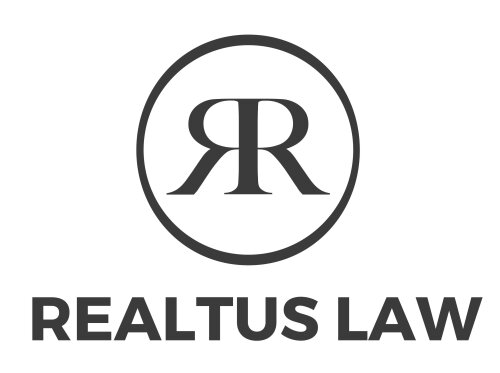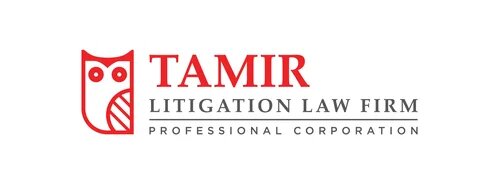Best Nonprofit & Charitable Organizations Lawyers in Richmond Hill
Share your needs with us, get contacted by law firms.
Free. Takes 2 min.
List of the best lawyers in Richmond Hill, Canada
About Nonprofit & Charitable Organizations Law in Richmond Hill, Canada
Nonprofit and charitable organizations play a vital role in the Richmond Hill community, providing important services in sectors such as health, social services, education, arts, and recreation. In Canada, these organizations operate under a specialized legal framework that regulates their creation, governance, and activities. In Richmond Hill, which is part of Ontario, nonprofits and charities must comply with both federal and provincial regulations. Key legal considerations include how to properly incorporate, maintain compliance with tax laws, adhere to public benefit requirements, and ensure good governance. Understanding the legal landscape is essential for anyone wishing to start, manage, or support a nonprofit or charity in the area.
Why You May Need a Lawyer
Engaging a lawyer specializing in nonprofit and charitable organizations is valuable in many situations, including:
- Incorporating a new nonprofit or registering a charity
- Securing or maintaining charitable status with the Canada Revenue Agency (CRA)
- Drafting and updating bylaws or governance documents
- Managing disputes among board members, staff, or stakeholders
- Addressing compliance issues, including annual filing requirements
- Conducting mergers, asset transfers, or winding down operations
- Advising on employment, volunteer agreements, and risk management
- Responding to audits or investigations by regulators
- Navigating fundraising laws, grant agreements, and donor relations
- Ensuring compliance with privacy, anti-spam, and other legislations
Local Laws Overview
Richmond Hill nonprofit and charitable organizations are subject to a combination of federal and Ontario provincial laws and regulations:
- Federal laws: Organizations can incorporate under the Canada Not-for-profit Corporations Act and, if seeking charitable status, must be registered and regulated by the CRA under the Income Tax Act.
- Ontario laws: Groups may also incorporate as nonprofits under the Ontario Not-for-Profit Corporations Act (ONCA), which governs organizational structures, directors’ duties, membership rights, and more.
- Registration & Reporting: Charities must submit annual returns and meet reporting obligations to the CRA. Ontario nonprofits also have provincial reporting requirements.
- Governance: Boards must act in accordance with articles of incorporation, bylaws, and relevant legislation, maintaining fiduciary duty, avoiding conflicts of interest, and ensuring transparency.
- Local considerations: Compliance with municipal by-laws, including zoning and business permits where applicable, must be reviewed, especially for organizations with physical locations.
- Employment Law: Organizations employing staff must comply with the Employment Standards Act and human rights legislation in Ontario.
- Privacy and Communication: Compliance with Canada’s privacy (PIPEDA) and anti-spam (CASL) laws is required, especially concerning donors and volunteers.
Failure to comply with these laws could result in penalties, loss of charitable status, or other negative consequences.
Frequently Asked Questions
What is the difference between a nonprofit and a registered charity?
A nonprofit organization is formed primarily for a social, recreational, or public benefit purpose and cannot operate for profit. A registered charity, while also nonprofit, must be registered with the CRA and can issue donation receipts for income tax purposes, but must meet stricter requirements, including a defined charitable purpose and regular reporting.
How do I incorporate a nonprofit in Richmond Hill?
You can incorporate under Ontario provincial law (ONCA) or federally (Canada Not-for-profit Corporations Act) by preparing your articles of incorporation and bylaws, and applying through the respective government portal. Legal advice is recommended to ensure compliance.
What are the main responsibilities of directors and officers of a nonprofit?
Directors and officers must act honestly, in good faith, and in the best interests of the organization. They have oversight of governance, financial stewardship, compliance, and strategic direction, and are held to a legal “duty of care.”
Do nonprofits need to register with the CRA?
Nonprofits do not have to register with the CRA unless they wish to be recognized as registered charities and issue official donation receipts. However, both nonprofits and charities might have to file certain information returns annually.
What are the reporting obligations for nonprofits and charities?
Registered charities must file an annual T3010 return with CRA. Ontario nonprofits may need to file annual returns with the Ministry of Public and Business Service Delivery and/or update corporate records.
Can a charity operate outside of Canada?
Yes, but Canadian registered charities must demonstrate “direction and control” over their resources when operating abroad and ensure that their activities align with their registered charitable purposes.
What kinds of activities can a nonprofit or charity legally engage in?
Activities must align with the organization’s legally defined purposes. Charities can only engage in charitable activities, while nonprofits must not distribute profits to members or directors.
What are the rules around fundraising?
Fundraising must be transparent, truthful, and not benefit private interests. Registered charities must keep accurate records of fundraising activities and ensure compliance with CRA guidelines and anti-fraud legislation.
How do nonprofits manage volunteers legally?
Nonprofits should have volunteer agreements, clear policies, and adhere to safety, privacy, and human rights obligations. While volunteers are not employees, certain laws regarding safety and conduct still apply.
What should I do if my organization is facing a legal or compliance issue?
Seek legal advice as soon as possible to mitigate risks. Address concerns transparently, maintain open communication with your board, and ensure all records are up to date and accessible.
Additional Resources
If you need more information or support, the following resources can be helpful:
- Canada Revenue Agency (CRA) Charities Directorate
- Ontario Ministry of Public and Business Service Delivery
- Ontario Nonprofit Network (ONN)
- Imagine Canada
- Law Society of Ontario - Lawyer Referral Service
- Local Community Legal Clinics
- York Region’s Volunteer Centre or Richmond Hill Municipal Offices for local programs
Next Steps
If you require legal assistance regarding a nonprofit or charitable organization in Richmond Hill:
- Identify the legal issue or question you have-incorporation, compliance, governance, disputes, etc.
- Gather relevant documents, such as your articles of incorporation, bylaws, annual filings, and correspondence with regulators.
- Contact a lawyer with experience in nonprofit or charity law, using resources like the Law Society of Ontario’s directory or local referrals.
- Prepare a clear summary of your needs for your initial consultation to make the process efficient and effective.
- Consider joining sector networks or obtaining training for ongoing compliance and governance best practices.
Taking proactive steps and consulting with knowledgeable legal professionals can help your organization meet its objectives while staying compliant and protected under the law.
Lawzana helps you find the best lawyers and law firms in Richmond Hill through a curated and pre-screened list of qualified legal professionals. Our platform offers rankings and detailed profiles of attorneys and law firms, allowing you to compare based on practice areas, including Nonprofit & Charitable Organizations, experience, and client feedback.
Each profile includes a description of the firm's areas of practice, client reviews, team members and partners, year of establishment, spoken languages, office locations, contact information, social media presence, and any published articles or resources. Most firms on our platform speak English and are experienced in both local and international legal matters.
Get a quote from top-rated law firms in Richmond Hill, Canada — quickly, securely, and without unnecessary hassle.
Disclaimer:
The information provided on this page is for general informational purposes only and does not constitute legal advice. While we strive to ensure the accuracy and relevance of the content, legal information may change over time, and interpretations of the law can vary. You should always consult with a qualified legal professional for advice specific to your situation.
We disclaim all liability for actions taken or not taken based on the content of this page. If you believe any information is incorrect or outdated, please contact us, and we will review and update it where appropriate.









